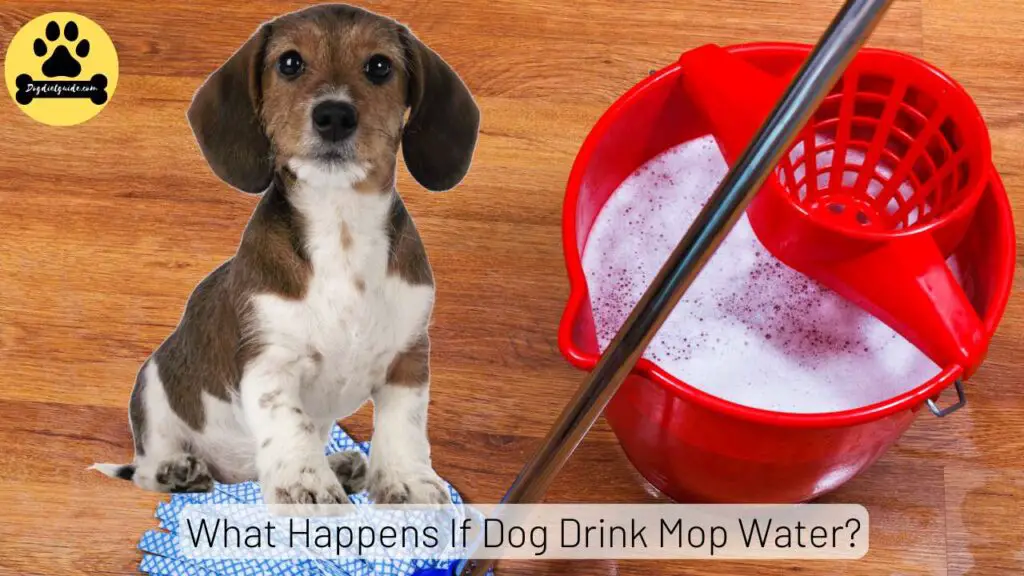As our furry companions weave their way into the fabric of our lives, their well-being becomes a top priority. Responsible pet owners know the importance of providing their dogs with a balanced and nutritionally appropriate diet.
Yet, amidst the plethora of dog food options, questions arise about the safety of sharing certain human foods with our canine friends. One such query often appears: “Can dogs eat cream of mushroom soup?”
While this popular comfort food’s rich and Savoury aroma may make it tempting to share a spoonful with your four-legged companion, it’s crucial to delve into the ingredients and potential risks before indulging your dog’s curiosity.
Cream of mushroom soup can be problematic for dogs:
The high-fat content of mushroom cream and the elevated salt levels in soup can lead to obesity, digestive upset, pancreatitis, and sodium poisoning in dogs. Seasonings such as garlic and onion in the mushroom soup are known to be toxic to canines, potentially causing Heinz body hemolytic anemia in your furry friend.
Canine Dietary Needs
Dogs have unique dietary requirements that significantly differ from humans. While our taste buds may savor the rich flavors of cream of mushroom soup, assessing its suitability for our four-legged friends is crucial.
Can Dogs Eat Cream of Mushroom Soup?
No, cream of mushroom soup can lead to health issues in dogs. The high-fat nature of the cream of mushroom soup can cause obesity and gastrointestinal problems in dogs. Many cream-based soups contain ingredients that can be harmful to dogs, such as onions and garlic, which are known to be toxic.
Onions and garlic, common ingredients in many variants of mushroom soups, contain compounds that can damage a dog’s red blood cells, leading to anemia.
Additionally, dairy products, especially in large quantities, can cause digestive upset in canines, as many are lactose intolerant.
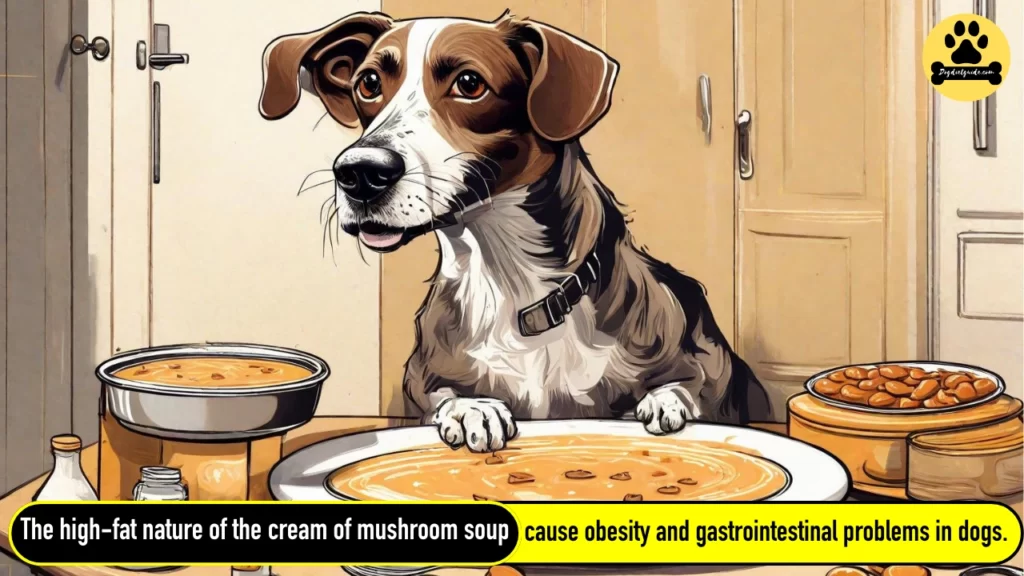
Is Cream Of Mushroom Soup Bad For Dogs?
Yes, cream of mushroom soup is not recommended for dogs. The creamy texture of such soups may include dairy products, which can be challenging for some dogs to digest, particularly those who are lactose intolerant.
Cream of Mushroom Soup Health Risks For Dogs
Cream of mushroom soup, like many processed and canned soups, may have certain health risks if consumed excessively or by individuals with specific dietary concerns.
Here are some potential health risks associated with cream of mushroom soup:
- Canned soups, including cream of mushroom, are often high in sodium. Excessive sodium intake can contribute to high blood pressure and other cardiovascular issues.
- Cream-based soups tend to be higher in calories and fat than broth-based soups. Regular consumption of high-calorie and high-fat foods may contribute to weight gain and related health issues.
- Commercially available cream of mushroom soup may contain additives, preservatives, and other processed ingredients that some individuals may be sensitive to or wish to avoid.
- Some canines may be allergic to certain ingredients commonly found in cream of mushroom soup, such as dairy or specific mushrooms.
- Some mushrooms can be toxic to dogs, and commercial soups may contain mushrooms that are unsafe for canine consumption.
- The richness of cream-based soups may lead to digestive discomfort for some individuals, especially those with sensitive stomachs or underlying digestive conditions.
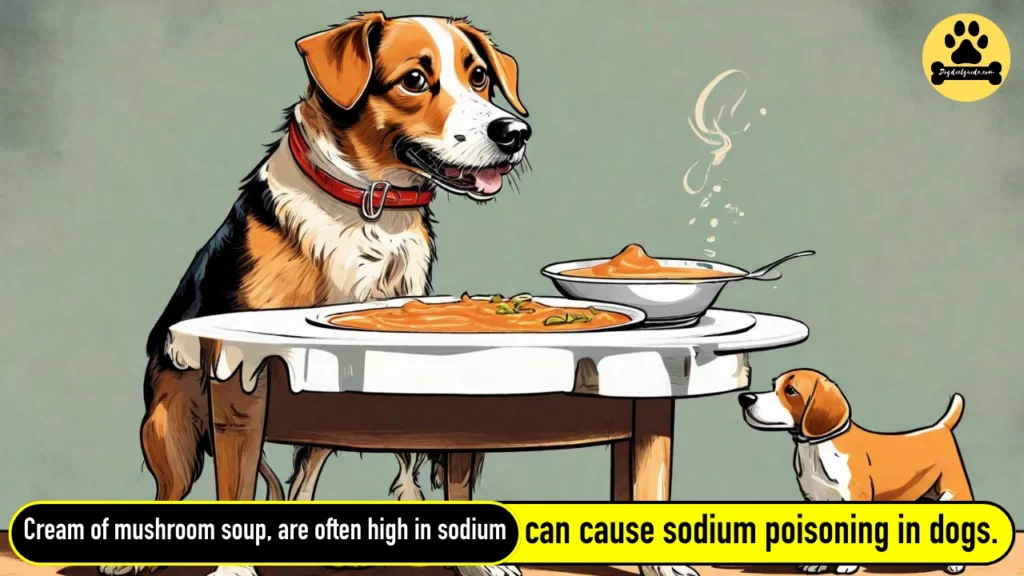
Please remember that not all types of mushrooms are safe for dogs. Feeding the wrong mushroom can be deadly for your pooch.
Related Post: Can Dogs Eat Turkey Necks?
The Dos and Don’ts
Dos:
- Seek professional advice before introducing mushrooms to your dog’s diet.
- Choose safe varieties like cooked white mushrooms.
- Serve in moderation as an occasional treat.
- Cook to enhance digestibility; avoid added seasonings or oils.
- Stick to dog-safe varieties (e.g., white button, cremini, shiitake).
- Avoid wild mushrooms, which can be toxic.
- Introduce gradually; watch for signs of allergies.
- Discontinue if any adverse reactions occur.
Don’ts:
- Keep canines away from wild mushrooms due to toxicity risks.
- Avoid processed or seasoned mushrooms, like those in complex dishes.
- Avoid mushrooms cooked with garlic or onions, which are toxic to canines.
- Use mushrooms as occasional treats, not a primary food source.
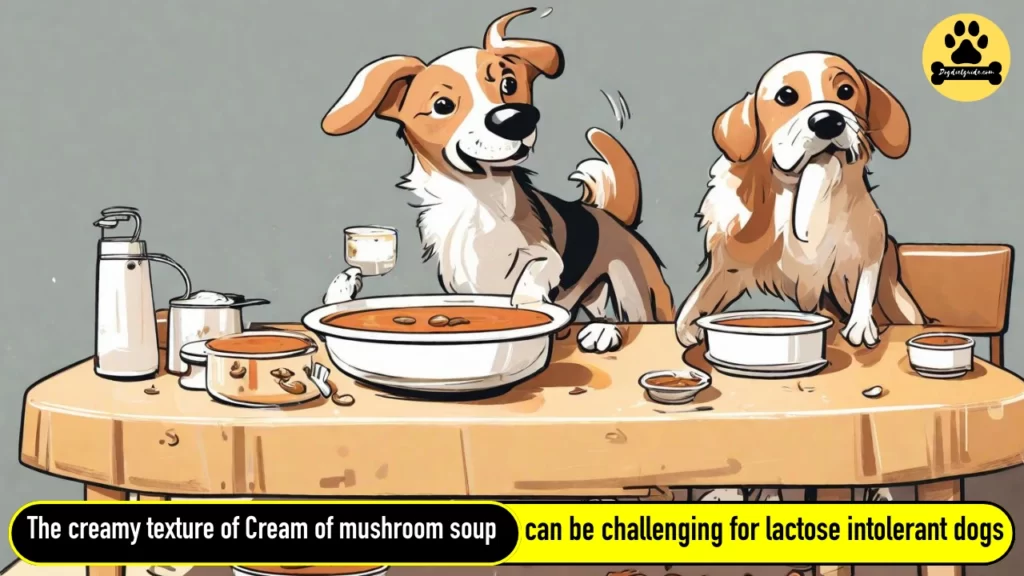
What if My Dog Ate Cream of Mushroom Soup?
A small amount of cream of mushroom soup will not harm your pup. However, if your dog has ingested excessive amounts of cream of mushroom soup, it is advisable to monitor them closely for any signs of distress or discomfort. Cream of mushroom soup may contain ingredients that can be harmful to dogs.
Look for symptoms like vomiting, diarrhea, lethargy, or unusual behavior. If you notice any concerning signs, it’s crucial to contact your veterinarian promptly.
Providing them with information about the ingredients in the soup can assist the vet in determining the best course of action.
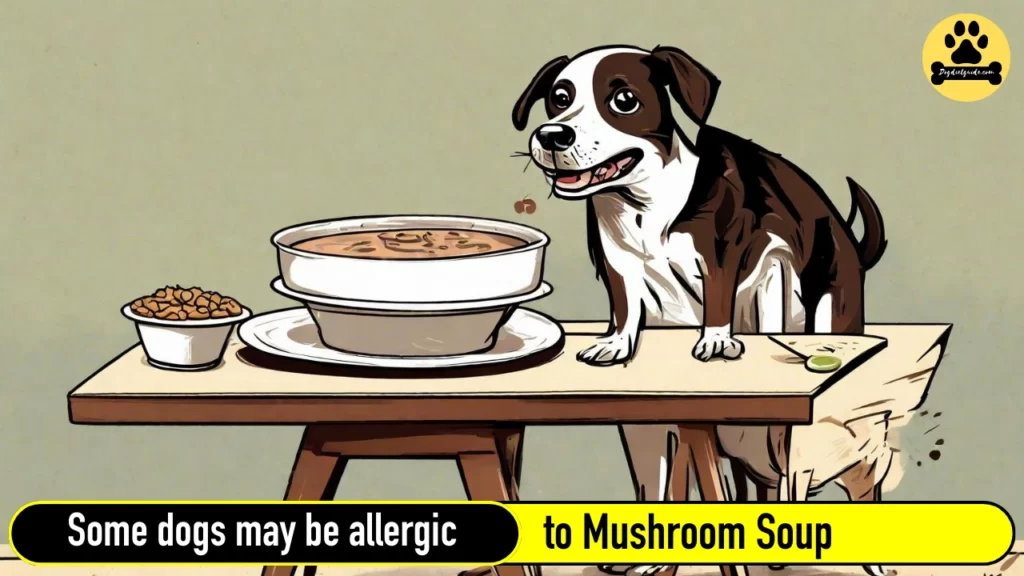
Dog-friendly Mushroom Recipe
Ingredients:
- 1 cup cooked chicken, shredded
- 1/2 cup white button or cremini mushrooms, finely chopped
- 1 egg
- 1/4 cup oats or oat flour (ensure it’s dog-safe)
- 1 tablespoon parsley, finely chopped (optional)
- 1 tablespoon olive oil
Instructions:
- Preheat your oven to 350°F (175°C).
- Combine the shredded chicken, chopped mushrooms, egg, oats, and parsley in a mixing bowl.
- Mix the ingredients well until you have a uniform mixture.
- Shape the mixture into small bite-sized balls or patties.
- Heat the olive oil in a skillet over medium heat.
- Place the chicken and mushroom bites in the skillet and cook on each side for a few minutes until golden brown.
- Transfer the bites to a baking sheet and bake in the preheated oven for 10-15 minutes or until they are cooked through.
- Allow the bites to cool before serving them to your pup.
Related Post: Is Crab Rangoon Safe For Dogs?
Final Thoughts: Can Dogs Eat Cream of Mushroom Soup?
In conclusion, can dogs eat cream of mushroom soup? While a small taste might not be harmful, the potential risks associated with mushrooms, cream, and seasonings make it a preferred dish for human consumption. Prioritize your dog’s health by choosing canine-friendly treats and avoiding ingredients that could jeopardize their well-being.
Always consult your veterinarian for personalized advice on your pup’s diet. Remember, a happy and healthy pup is the ultimate goal!
” It is essential to emphasize that while we offer valuable insights, we do not intend to replace or undermine the importance of your veterinarian’s advice. The information presented on our site is purely for informational and educational purposes.”

I’m JK. A pet lover who has years of pet blogging experience. I thought it would be a great idea to share my experience with all dog owners so they can also keep their canine companions healthy and happy.




